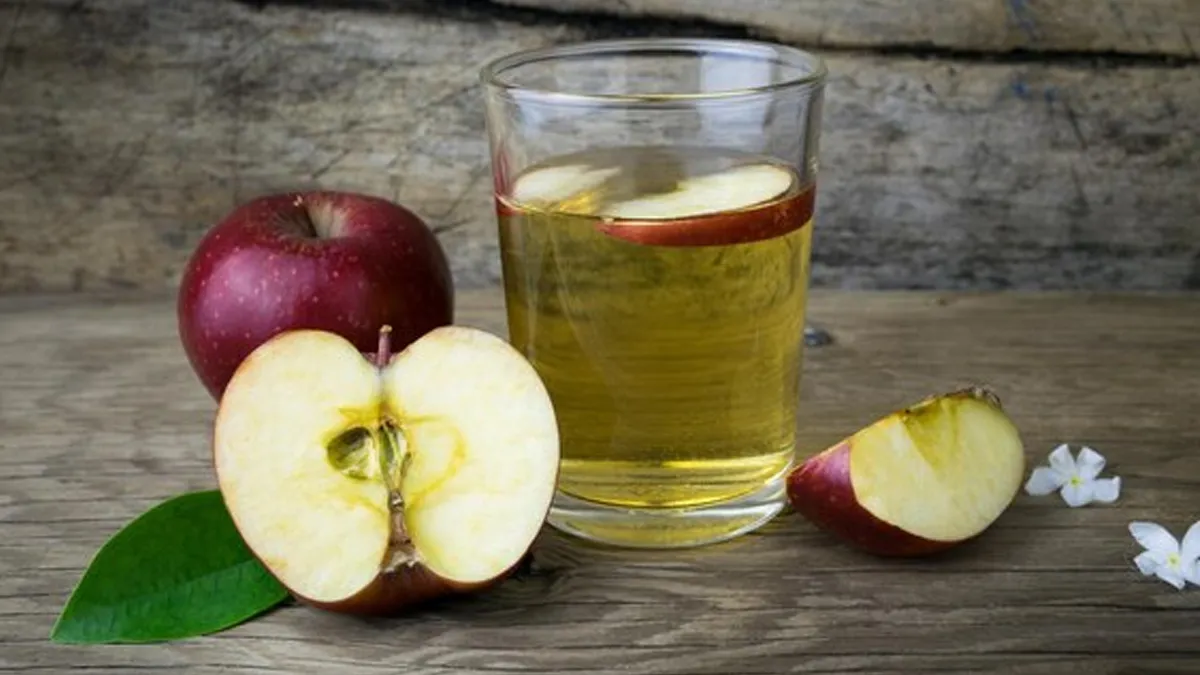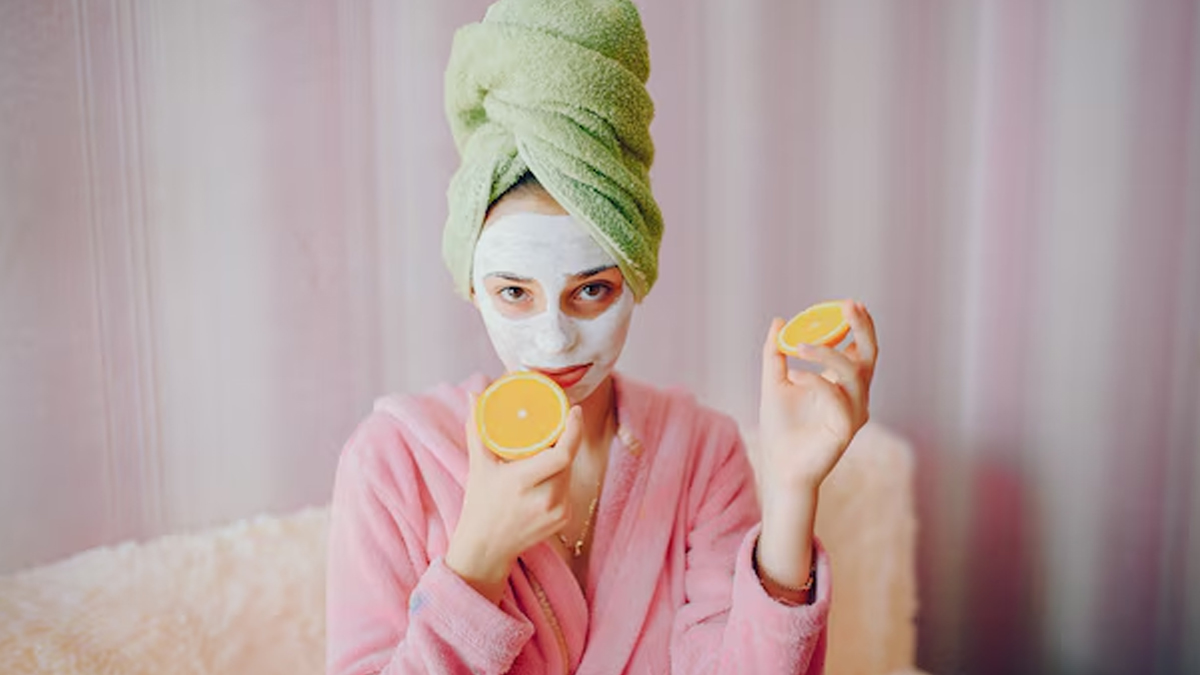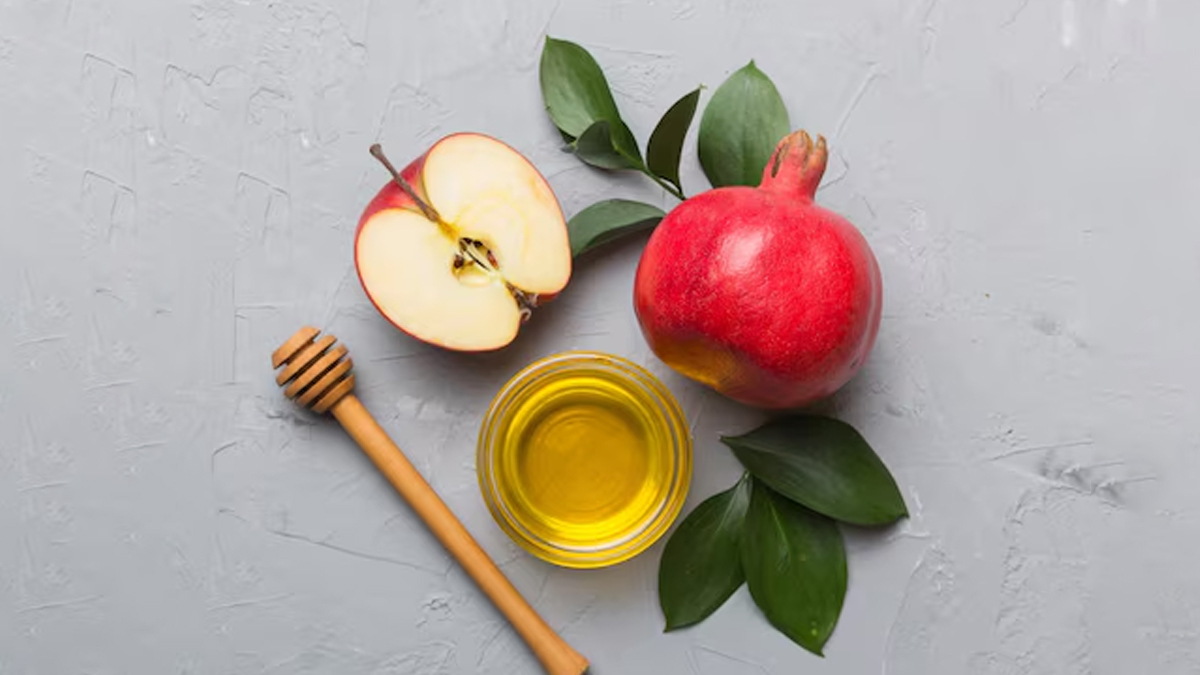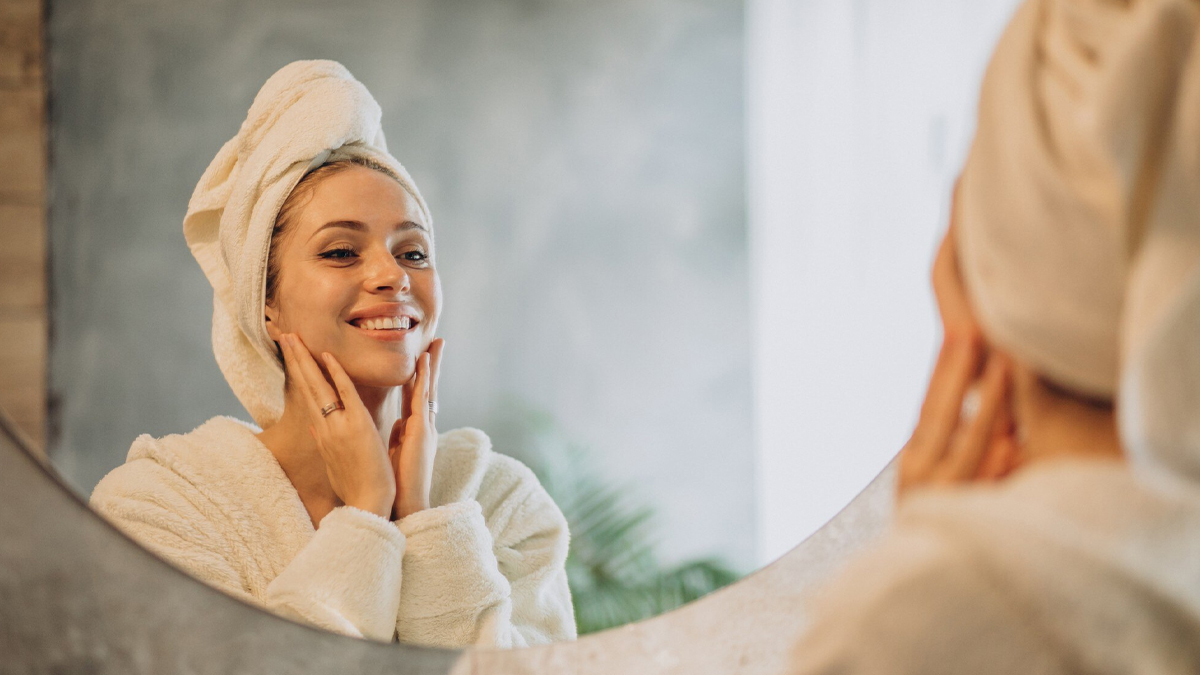
Apple Cider Vinegar (ACV) is a type of vinegar made from fermented apple juice. The process involves crushing apples, adding yeast to convert the sugars into alcohol, and then introducing bacteria to further ferment the alcohol into acetic acid, the main component of vinegar. Most of us are aware of ACV's use in cooking and its weight loss benefits. However, did you know that this popular ingredient is also a part of many beauty products? In fact, ACV face masks have gained much momentum among skincare enthusiasts. But to know whether they are really effective or just another trend, the OnlyMyHealth team interacted with Dr Amit Bangia, Associate Director of Dermatology, Asian Hospital, Delhi.
Table of Content:-
Skin Health Benefits Of Apple Cider Vinegar

In general, studies have referred to vinegar as a 'home remedy for many skin problems'. One study published in the International Journal of Dermatology noted that vinegar contains antimicrobial, antifungal, and antioxidant properties that support skin health.
According to Dr Bangia, the acetic acid in ACV is said to have antimicrobial properties that can help combat bacteria and fungi on the skin, potentially benefiting acne-prone skin. “Its natural exfoliating acids, like malic acid, may gently remove dead skin cells, promoting a smoother texture.”
He added, “ACV’s pH-balancing qualities can also help restore the skin’s natural barrier, which is great for maintaining hydration and reducing oiliness. Some studies suggest it may reduce hyperpigmentation by exfoliating darkened areas, though results vary.”
Additionally, while it isn’t a miracle cure, its anti-inflammatory properties can calm mild irritation when used correctly.
Is The Hype Around ACV Face Masks Real?

While there has been some buzz around ACV face masks, given their exfoliating and antibacterial effects, which can help with acne and dullness, the hype may be overstated, according to Dr Bangia.
He said, "It’s not a one-size-fits-all solution, and clinical evidence is limited compared to, say, retinoids or salicylic acid. If you’re seeing influencers rave about glowing skin, results depend heavily on proper dilution and skin type. Undiluted ACV can do more harm than good, so don’t believe every glowing review without digging deeper."
Also Read: How To Add Apple Cider Vinegar To Your Diet For Weight Loss
Skin Types That Should Avoid ACV Masks
| Skin Type/Condition | ACV Caution/Effect | Recommendation |
| Sensitive or Dry Skin | ACV’s acidity can disrupt the skin barrier, causing redness or peeling. | Use with extreme caution or avoid. |
| Eczema, Rosacea, compromised barriers (sunburn, over-exfoliation) | Can sting and worsen inflammation. | Avoid completely. |
| Oily & Acne-Prone Skin | May tolerate ACV better. | Patch-test before use. |
| Using Prescription Topicals (e.g., Retinoids) | Combination with ACV can be too harsh. | Consult a dermatologist first. |
How To Make ACV Face Mask And How To Safely Apply It

Dr Bangia started by emphasising, “Always dilute ACV—undiluted, it’s far too acidic (pH around 2-3).”
“Mix one part ACV (preferably organic, with the ‘mother’) to three or four parts water. For a mask, combine this with soothing ingredients like honey or oatmeal. Apply a thin layer with clean hands or a brush, leave it on for 5-10 minutes, then rinse thoroughly with lukewarm water. Follow with a gentle moisturiser to lock in hydration,” he added, recommending a patch test on your inner arm first to check for irritation. Never apply it near your eyes or open wounds, he shared.
Conclusion
Dr Bangia concluded by saying that while ACV can offer benefits like exfoliation and bacteria-fighting properties, it’s not a cure-all. "Dilution, moderation, and knowing your skin type are key to using it safely. If you’re unsure, a quick consult with a dermatologist can guide you toward the best approach for your skin."
Also watch this video
How we keep this article up to date:
We work with experts and keep a close eye on the latest in health and wellness. Whenever there is a new research or helpful information, we update our articles with accurate and useful advice.
Current Version
